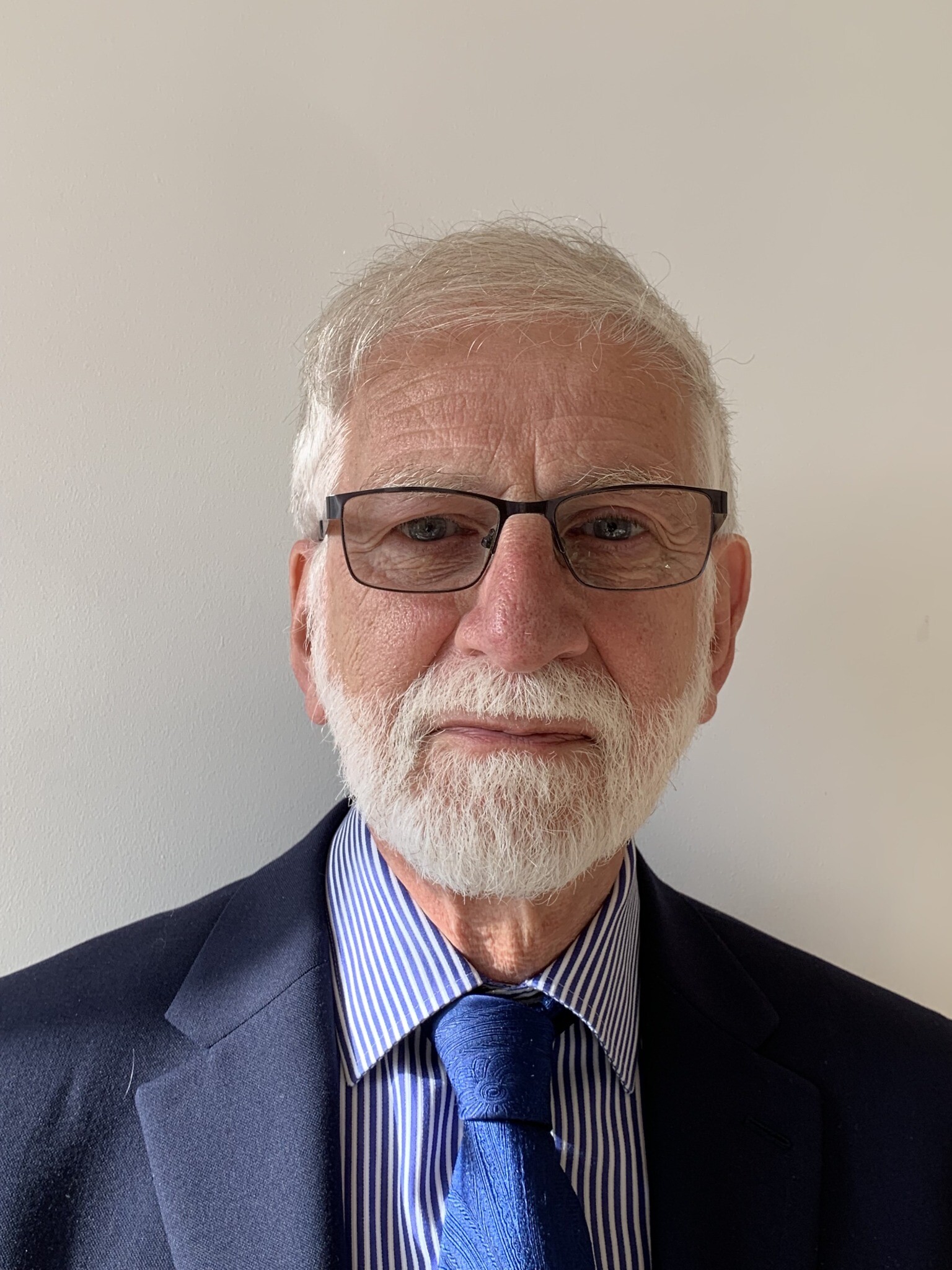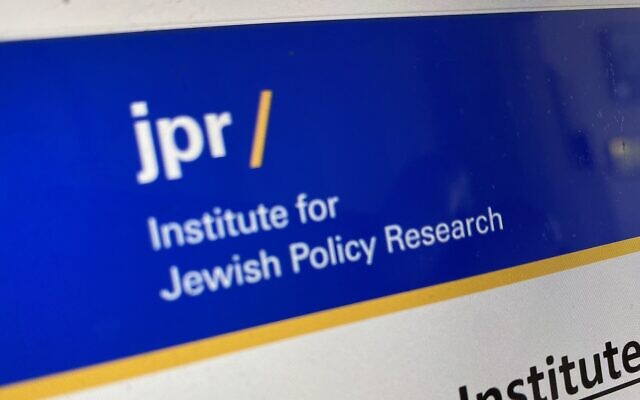OPINION: Hard to be a Jew, harder to be a Jewish demographer
The opinions of the community are not always the same as those of Jewish leaders, writes Professor Colin Shindler
A few weeks ago, the JPR/Institute for Jewish Policy Research published a report on antisemitism in the UK in 2023 and included questions on how British Jews regard Israel’s leaders. The subtext was clearly the crisis about ‘judicial reform’.
Close to 4,000 respondents replied, with 79 percent of those who gave an opinion disapproving of Netanyahu.
Yet most Jewish organisations, including those representing central orthodoxy, ignored it. While the JPR survey attracted a lot of attention in the Israeli press, sections of the Jewish media downplayed it. This contrasted with coverage in the weeks that followed about whether Bradley Cooper’s prosthetic nose in the Netflix film about Leonard Bernstein was an act of antisemitism. The JPR survey revealed an uncomfortable truth — one many wished to avoid.
Yet demographic surveys challenge both leadership and its policies because they reveal what the ordinary Jew in the street believes. As far back as 1978, a Board of Deputies survey of the Redbridge community indicated over 60 percent of Jewish parents opposed Jewish day schools, citing segregation as their main objection.
In the 1980s, City University’s Steve Miller’s survey of 1,400 Jewish students included the comment that ‘a harsh conclusion would be that Jewish secondary schooling reinforces the mechanical aspects of Judaism at the expense of the intellectual and spiritual dimensions’.

In this country, figures such as Barry Kosmin, Marlena Schmool and Stanley Waterman in the past — and today the JPR’s Jon Boyd and his colleagues — have demonstrated the opinions of the community are not always the same as those of Jewish leaders. For example, several surveys conducted by both the JPR and City University (in which I was involved) have suggested 75 percent of British Jews disapprove of the settlement drive on the West Bank. Yet this fact too has been buried — even in discussions with government ministers.
Demographic surveys about diaspora attitudes toward Israel began in the early 1980s on behalf of the American Jewish Committee. In 1988, 45 percent of US Jews were troubled by the policies of the then Israel government, led by the Likud’s Yitzhak Shamir. A large majority also supported the right of Jewish critics to air their views.
Over 30 years later, it is clear US Jews have maintained their dovish inclinations — and the rest of the English-speaking diaspora have indicated similar views about successive Netanyahu governments.
In one sense, the silence on the settlement drive points to a lack of accountability toward a broad community opinion while accepting the fact diaspora Jewish organisations are voluntary bodies.
Moreover such voluntary bodies are dependent on well-meaning funders with views rather than independent funding from the British state. The Board of Deputies, led by its outgoing president, Marie van der Zyl, has clearly taken note of many recent demographic surveys and has attempted to implement the findings expressed in them. On a recent visit to Israel, she pointedly and publicly met the leader of the Opposition, Yair Lapid, a vigorous opponent of ‘judicial reform’ — and not Ben-Gvir and Smotrich.
Demographic surveys also distinguish between support for the Israel government and support for the state. While an overwhelming majority of British Jews identify with Israel and do not disparage the label of Zionist, the JPR survey suggests 72 percent of British Jews are pessimistic about the future of democratic government in Israel.
Demographic surveys also point to how miniscule is the support from British Jews for Netanyahu — the JPR showed only 13 percent approved of him. Yet organisations often prefer not to recognise how small in number they are, often according them equal status with Netanyahu’s critics in the name of consensus and communal harmony.
The JPR should be thanked for its painstaking analysis despite the silent brickbats thrown at them — opponents will undoubtedly look for ‘alternative facts’ in true Trumpian style. It is hard to be a Jew, but it is even harder to be a Jewish demographer.
- Colin Shindler is a professor of Israel studies

Thank you for helping to make Jewish News the leading source of news and opinion for the UK Jewish community. Today we're asking for your invaluable help to continue putting our community first in everything we do.
For as little as £5 a month you can help sustain the vital work we do in celebrating and standing up for Jewish life in Britain.
Jewish News holds our community together and keeps us connected. Like a synagogue, it’s where people turn to feel part of something bigger. It also proudly shows the rest of Britain the vibrancy and rich culture of modern Jewish life.
You can make a quick and easy one-off or monthly contribution of £5, £10, £20 or any other sum you’re comfortable with.
100% of your donation will help us continue celebrating our community, in all its dynamic diversity...
Engaging
Being a community platform means so much more than producing a newspaper and website. One of our proudest roles is media partnering with our invaluable charities to amplify the outstanding work they do to help us all.
Celebrating
There’s no shortage of oys in the world but Jewish News takes every opportunity to celebrate the joys too, through projects like Night of Heroes, 40 Under 40 and other compelling countdowns that make the community kvell with pride.
Pioneering
In the first collaboration between media outlets from different faiths, Jewish News worked with British Muslim TV and Church Times to produce a list of young activists leading the way on interfaith understanding.
Campaigning
Royal Mail issued a stamp honouring Holocaust hero Sir Nicholas Winton after a Jewish News campaign attracted more than 100,000 backers. Jewish Newsalso produces special editions of the paper highlighting pressing issues including mental health and Holocaust remembrance.
Easy access
In an age when news is readily accessible, Jewish News provides high-quality content free online and offline, removing any financial barriers to connecting people.
Voice of our community to wider society
The Jewish News team regularly appears on TV, radio and on the pages of the national press to comment on stories about the Jewish community. Easy access to the paper on the streets of London also means Jewish News provides an invaluable window into the community for the country at large.
We hope you agree all this is worth preserving.






















